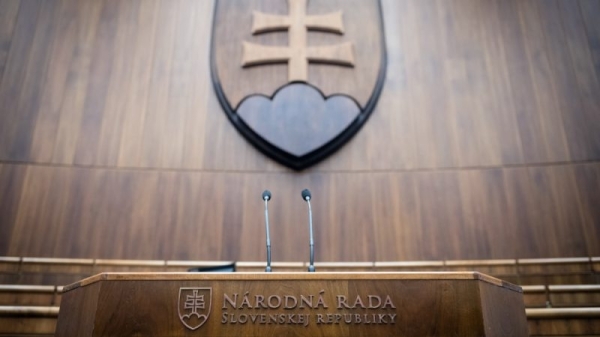Slovakia pushes for new law on NGOs, critics fear Hungary-like restrictions

Slovakia’s ruling coalition party has proposed an amendment to the country’s NGO law that would introduce the labelling of organisations receiving more than €5,000 a year in foreign funding as ‘organisations with foreign support’ – a move criticised by Slovak NGOs, who are urging the government not to follow Hungarian Prime Minister Viktor Orbán’s lead.
The amendment put forward by the ruling coalition SNS, which aims to increase the transparency of NGOs, could also modify the content of the annual NGO report and the published data on donors.
“The aim of this proposal is to increase the transparency of the financing of NGOs, which is a key element for strengthening public trust in NGOs in the form of publishing information about donations and donors if their amount exceeds a one-time or cumulative amount defined by law,” the explanatory report of the amendment reads.
The SNS also proposes to extend the possibility of involuntary termination of NGOs in case of violation of any of the new provisions of the law. The Interior Ministry could also be empowered to dissolve such organisations if they fail to comply with the obligation to file an annual report with the Register of Financial Statements.
On Tuesday, the Slovak Chamber of Non-Governmental Non-Profit Organisations called on the government of Prime Minister Robert Fico to reject the proposal, saying it is “discriminatory and breaches both Slovak and European law”.
“The proposal of the SNS party is more or less identical to the Hungarian law on foreign-funded NGOs. It restricts the free movement of capital within the EU, which means it conflicts with its founding treaties, which take precedence over our laws,” said Katarína Batková, a lawyer and one of the appeal’s authors.
In 2017, Hungary passed a similar law on foreign-funded NGOs, which required specific categories of NGOs receiving more than €24,000 in annual foreign funding to register and identify themselves as ‘foreign-supported organisations’.
Hungary had to repeal it in 2021, following a formal notice from the European Union and after the EU Court of Justice struck it down, saying that such restrictions violated EU law.
Albania has recently announced that it will set up a parliamentary commission to investigate foreign influence and funding within NGOs, and on social media and in traditional media.
Fedor Blaščák, director of the Open Society Foundation, told EURACTIV Slovakia that the newly proposed Slovak law is also similar to the one passed in Russia in 2012.
“Ideologically, it is indeed a Russian/Putin-style proposal. They have very similar starting points – they are directed against active citizens, civil society and democratic principles,” Blaščák said, adding that in terms of consequences, the Russian law is, however, incomparably harsher.
The newly proposed amendment is in line with the promises Fico’s government made in the past.
When the newly elected Slovak government signed a coalition agreement in October 2023, Fico stated, “It marks the end of the rule of political NGOs in Slovakia, adding that any NGO with foreign funding “must be labelled as foreign agent.”
The amendment is currently being processed by the interdepartmental consultation process. If passed, it could come into force on 1 January 2025.
(Natália Silenská | Euractiv.sk)
Read more with Euractiv




